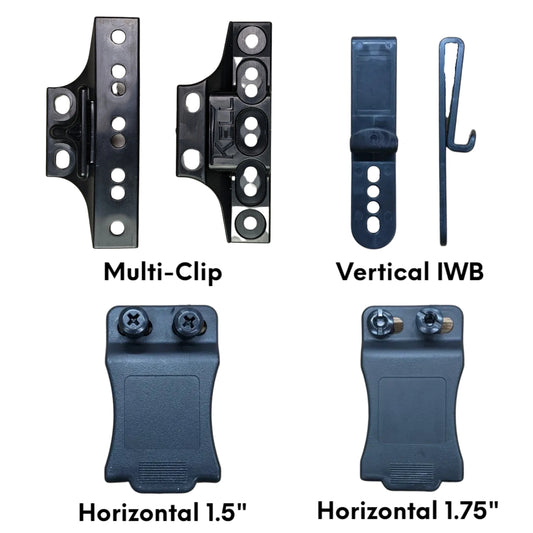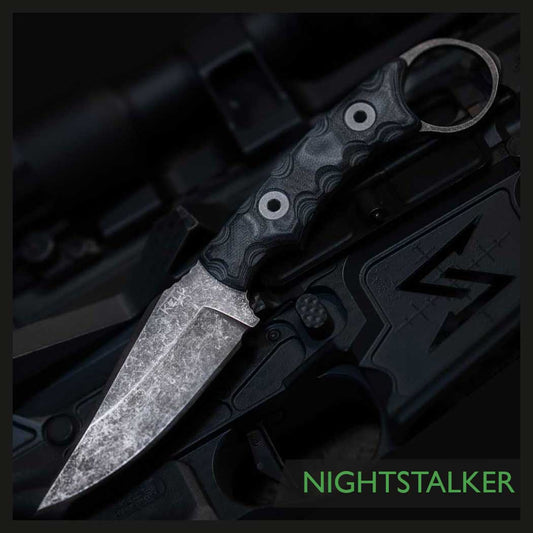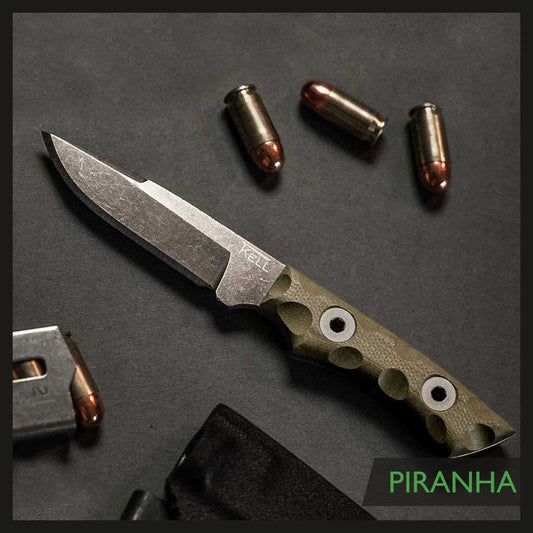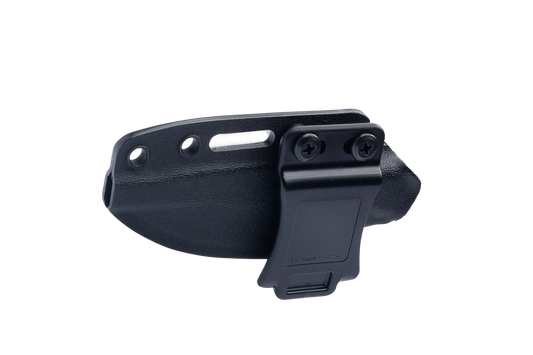Your tactical and fixed blade knives are like trusty friends for outdoor adventures. They need regular care to keep working well and looking good. Timely cleaning is key to maintain their beauty and ensure they're safe to use.
For tactical knife care or outdoor knife maintenance, a good cleaning routine is essential. This includes carefully washing, thoroughly drying, and proper storage. These steps will not only lengthen your knives' life but also boost their performance on your outdoor trips. Knowing how to clean your tools properly can make a big difference.
The Importance of Proper Knife Cleaning
Keeping your knife clean is key to it working well and keeping you safe. Knives used outside, like camping ones, get dirty easily. They may rust if not cared for properly. It's important to clean them to stop rust, keep them sharp, and maintain hygiene.
Preventing Rust and Corrosion
Cleaning your knife often stops it from rusting. Humid weather and water are not your knife's friend. Make sure to dry it completely after use. Using a good coat of rust protection will also help keep it in good shape.
Maintaining Blade Sharpness
Dirt and leftover food can make your knife dull. This means it won't cut well. Regular cleaning gets rid of these things, keeping your knife sharp for when you need it.
Ensuring Safety and Hygiene
Keeping your knife clean isn't just about making it work better. It's also about staying safe from germs. A clean knife won't infect you if you get a small cut. Make sure to clean and disinfect it to kill any germs it might have picked up.
Preparing Your Knives for Cleaning
To clean your knives well, it's key to get ready first. This helps get rid of dirt but keeps the blade safe.
Choosing the Right Cleaning Agents
Always pick gentle cleaning agents for knives. Use warm water with a bit of mild soap. These keep the knife's structure strong and clean. Stay away from strong chemicals that harm your knife's look.
Gathering Necessary Tools and Materials
For cleaning, you'll need a soft cloth or a gentle sponge. A toothbrush can help reach small spots. To deal with rust, a rust eraser is great. Also, have things like microfiber cloths and rust erasers ready. This makes the whole clean-up easier and quicker.
How to Clean Knives Effectively
Keeping your knives clean is key for them to work well and last long. Wash them by hand to remove dirt and stains. This keeps the knives safe to use. Start with warm water and a soft cloth or sponge. This helps keep the blades in good shape.
Steps for Hand Washing Your Knives
*Effective hand washing for knives* starts with warm water and a bit of soap. This combo gets rid of dirt easily. Use a soft sponge to clean the blade. Make sure you clean every spot, especially where food might be stuck. Don't soak the knives, as it can harm them.
Drying Your Knives Correctly
After washing, drying your knife right stops rust. Wipe it with a dry cloth right away. Then, let it air dry in a dry place for a quick bit. This removes any last wet spots.
Cleaning Different Types of Knives
Each knife may need its own way of cleaning. This is true for *knife type-specific cleaning*. For example, a strong tactical knife needs different care than a light kitchen knife. Use the right cleaners for your knife. This helps it last longer without damage.
With these steps, your knives will stay sharp and ready for use for a long time. Treat your knives well to get the best out of them.
Removing Rust from Knives and Maintaining Them
Keeping your knives free from rust is key for their long life and good function. You need to act fast when you spot rust. Knowing how to remove rust and take care of your knives will make sure they stay sharp.
Using a Rust Eraser or Baking Soda
Rust erasers are great for removing rust carefully. They take off the rust without harming the blade. Or, you can try baking soda and water mix. Make a paste and use a soft cloth or brush to rub off the rust. This method is gentle on the blade and does the job well.
Applying Oil to Prevent Future Rust
Once you've cleaned the rust, oiling your knives is very important. Use knife oil like mineral oil, to protect them from moisture. This help keep your knives free of rust and ready for use. Making this a habit will make your knives last longer.
Conclusion
Making sure your tactical and fixed blade knives are tip-top requires ongoing attention. The first step is getting the right cleaning stuff. Then, you move on to using the tools properly. This involves being thorough in how you clean and dry them.
Also, removing rust well is crucial. All these steps are essential for keeping your knives in great shape. Regular care keeps them sharp and safe for your outdoor activities.
Do these things regularly, and your knives will last. They will always be ready when you need them. So, stick to a good care routine for your knives. They will serve you well on every adventure you take.
FAQ
How should you always clean your knives after using them?
It's key to clean knives right after using them. Use warm water and mild dish soap. Wipe with a soft cloth to get rid of any food bits. Rinse well and then dry immediately to avoid rust.
What are the best cleaning agents for tactical and fixed blade knives?
Warm water and mild dish soap work well for everyday cleaning. For stubborn spots or rust, a rust eraser or a baking soda paste can be effective. Never use harsh chemicals since they can harm the blade.
Why is it important to prevent rust and corrosion on my knives?
Stopping rust and corrosion keeps your knife strong and safe. Rust can make the blade weak and more likely to break. Clean and dry your knife regularly to avoid these problems.
How can I maintain the sharpness of my blade through cleaning?
Clean your knife often to stop dirt from making it dull. This also helps prevent rust which can blunt the edge. A soft cloth is best for keeping the blade sharp.
What is the importance of ensuring safety and hygiene in knife care?
Good cleaning makes sure your knife is free from dirt and germs. This keeps it safe to use and lessens the risk of cuts from a dirty blade. It’s especially important for cooking and outdoor knives.
What tools and materials should I gather before cleaning my knives?
You'll need warm water, mild soap, a soft cloth, and maybe a toothbrush for small spots. For rust, have baking soda handy. Use mineral oil after cleaning to protect the knife.
What are the steps for hand washing tactical and fixed blade knives?
Wash with warm water and mild soap first. Use a soft cloth to wipe the blade carefully. A toothbrush helps clean small or tight places. Rinse well and dry straight away, focusing on hidden spots.
Why is drying knives correctly after cleaning important?
Drying well prevents rust. Moisture can harm the knife if left unchecked. Be thorough, especially in areas water might collect.
How do you clean different types of knives effectively?
Each knife type may need special care. Be gentle with tactical knives to protect the pivot. For bigger knives, like fixed blades, a deeper clean may be necessary. Always follow the maker's cleaning tips.
How can I remove rust from my knives?
To remove rust, try a rust eraser or a baking soda paste. Rub gently with a soft cloth or toothbrush. After cleaning, rinse the knife and dry it properly.
Why should I apply oil to my knife after cleaning?
Oiling your knife keeps it from rusting by blocking out moisture. It also makes the blade move smoothly and last longer.







